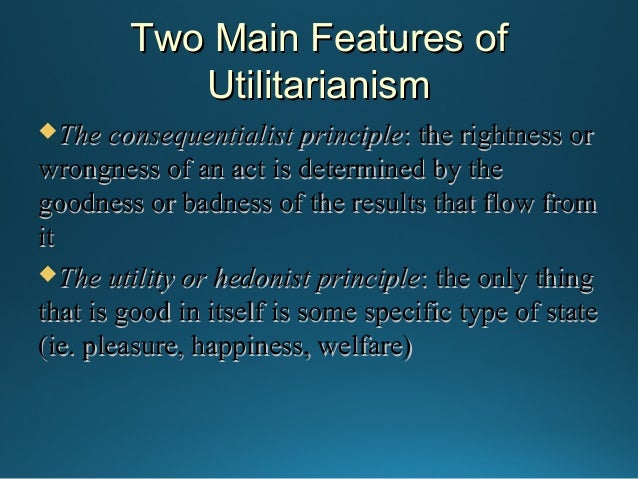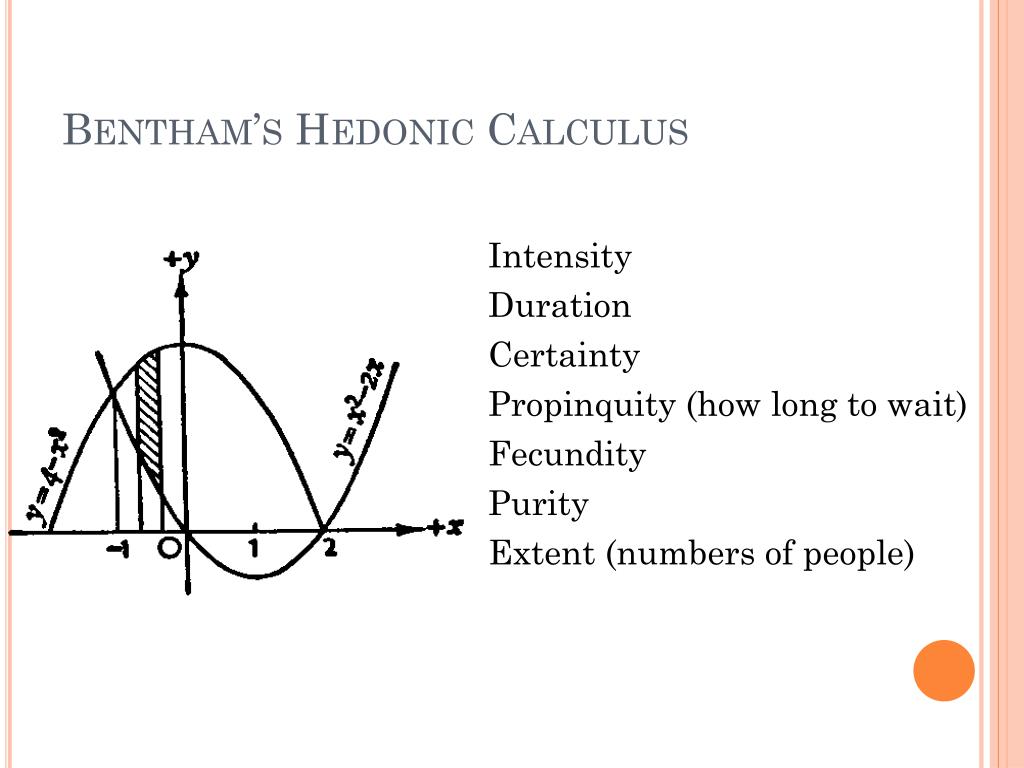

Explanation: It is for the sake of this that we all do. These different ways of regulating pleasure and pain, called “regulatory focus,” have a major impact on people's feelings, thoughts, and actions that is independent of the hedonic principle per se. The claim that people are motivated to experience pleasure and avoid pain. He is primarily known today for his moral philosophy, especially his principle of utilitarianism, which evaluates actions based upon their consequences.The relevant consequences, in particular, are the overall happiness created for everyone affected by the action. This chapter describes two different ways in which the hedonic principle operates-namely, one with a promotion focus and other with a prevention focus. Jeremy Bentham (17481832) Jeremy Bentham was an English philosopher and political radical. Almost any area of motivation can be discussed in terms of the hedonic principle. However, it is noted that the hedonic principle is very basic and is limited as an explanatory variable. This principle underlies motivational models across all levels of analysis in psychology from the biological to social. It sees in hedonism an extremely simplified interpretation of the driving forces and motivations of human behavior, an interpretation that tends toward relativism and individualism.The hedonic principle that people approach pleasure and avoid pain has been the basic motivational principle throughout the history of psychology. Marxism criticizes hedonism primarily for its naturalistic and ahistorical conception of man. Some modern bourgeois theoreticians also subscribe to ideas of hedonism, including G. The principles of hedonism achieved their fullest expression in the ethical theories of utilitarianism, which conceived of utility as pleasure or the absence of suffering (J.

Gassendi, and the French materialists of the 18th century frequently had recourse to the hedonist interpretation of ethics.

In the struggle against the religious conception of morality T. Hedonist ideas were widely disseminated during the Renaissance and, later, in the ethical theories of the philosophes. Here they approached the principles of eudaemonism, insofar as the criterion for satisfaction was considered to be the absence of suffering and tranquillity of the spirit (ataraxia). The ideas of hedonism were developed differently by Epicurus and his followers. They explore whether approach or avoidance motivation increases the effect that people feel they were treated more fairly following procedures that do versus do not allow them an opportunity. In ancient Greece one of the first exponents of ethical hedonism was the founder of the Cyrenaic school, Aristippus (early fourth century B.C.), who regarded as the highest good the attainment of sensory satisfaction. The authors investigate the relation between the hedonic principle (people’s motivations to approach pleasure and to avoid pain) and procedural justice.

As a normative principle hedonism is the opposite of asceticism. Hedonism views the striving for pleasure as man’s basic motivating principle, inherent and predetermining all his actions this makes hedonism a variant of anthropological naturalism. An ethical position that asserts that pleasure is the highest good and the criterion for human behavior and that reduces moral demands in all their diversity to pleasure.


 0 kommentar(er)
0 kommentar(er)
